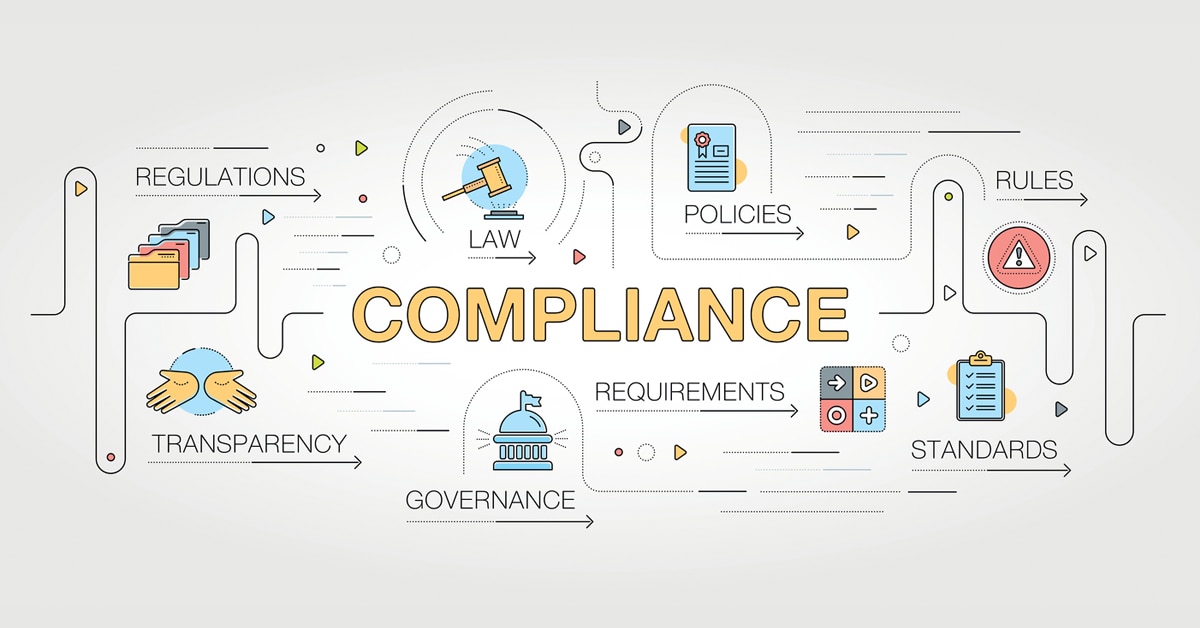
Each industry has standards and regulatory compliance concerns. The health care industry arguably has the most well-known, thanks to the Health Insurance and Portability Accountability Act (HIPAA) and its efforts to keep electronic protected health information (ePHI) safe. HIPAA compliance is essential for organizations that store, maintain or transmit ePHI and staying on top of HIPAA regulations can be challenging. In truth, your company’s help desk can serve as powerful ally in maintaining HIPAA compliance.
What can the IT help desk do to remain HIPAA compliant? While the help desk by itself is not the single solution, it can help your HIPAA-compliant organization more than you think. Learn how your IT department is vital to achieving and maintaining your compliance.
Know the Costs of Noncompliance
These federal guidelines, which have been in play since the mid-1990s, seek to protect patient medical information. Practitioners, hospitals, and third-party vendors are aware of the steep costs associated with violating HIPAA rules – physicians can lose their licenses to practice medicine, organizations can suffer reputational damage, lose business, and face steep fines:
- Organizations may be fined $50,000, up to $1.5 million per record.
- Multiple infractions may result in loss of certification, even imprisonment.
The real costs of noncompliance can be difficult to assess fully but, according to research published by the Ponemon Institute in 2016, the average consolidated total cost of a data breach grew from $3.8 million to $4 million. The Ponemon Institute also reported that the average cost incurred for each lost or stolen record containing sensitive and confidential information increased from $154 to $158.
In a world of marked by increasing incidents of cybercrime, organizations are more vulnerable than ever. A 2016 cyber attack on Phoenix-based Banner Health impacted 3.7 million people, among the largest healthcare data breaches reported to date in 2016. “Potentially compromised information includes patient names, addresses, birthdates, physician names, dates of service, clinical information, health insurance information and Social Security numbers if one was provided to the system,” according to Akanksha Jayanthi, writing for Becker’s Healthcare.
And the government penalties for noncompliance are only the beginning. The affected organization’s clients may also file civil suits to the tune of millions more. The actual costs of noncompliance may not be fully realized for years: Data breaches are hard to track, and companies are charged for each medical record, not for each negligent act.
The most recent HIPAA statistics indicate there have been nearly 143,000 HIPAA violation complaints reported, as of October 2016. The majority of those breaches, upon investigation by the Department of Health and Human Services, have led to actual violations.
The Help Desk Helps
At first glance, it might not seem like your help desk tool could do much to help achieve compliance. And it’s true, a help desk is not, by itself, a compliance solution. But having one in your IT operational framework helps facilitate processes that allow HIPAA-compliant IT organizations to react readily and work proactively to prevent security incidents. Specifically, there are four key areas where a help desk tool can aid an organization with compliance.
- Enjoy Physical Safeguards
To remain compliant, IT providers must restrict access to all health care storage systems and facilities. A help desk tool’s collaboration function allows users to recognize and report any entry restrictions and failures, should they occur. Automated ticket generation expedites the process so these IT specialists can effectively address and resolve urgent safety matters before they become real security issues.
- Add Extra Security with Technology
Typically electronic media data is encrypted at all stages of its life cycle, including transmission, storage, and backup. Data access is controlled by user access safeguards and entry validation tools, but these mechanisms are not fail-proof. The help desk tool ensures speedy collaboration between the security and IT teams to implement workflows correctly. In the event of change, a help desk tool with a change management function obtains the necessary permissions and implements changes without a hitch.
- Control Your Asset Management
Companies use hardware and software assets to handle and transmit sensitive health data. These devices must comply with data protection policies outlined by HIPAA. A help desk tool with asset management functionality tracks IT assets efficiently, including issue history, while monitoring the device’s life cycle. Key players are well-informed about the health of critical devices on the network.
- Enact Device and Network Policies
Integrate your help desk tool with network and server monitoring functions, so your IT department is always aware of potential device failures. Specialists can address problem devices immediately. With well-defined problem management methodologies, your IT department is more likely to proactively recognize threats and take preventive steps, not reactive ones, regarding security issues.
While not a compliance solution itself, your help desk can help your organization maintain HIPAA compliance by automating processes, eliminating redundancies, and getting information to the principal members of the organization quickly. Choose a HIPAA-compliant IT help desk solution with asset management integration and change management tools to ensure your company has everything it needs to achieve regulatory compliance.
SolarWinds Web Help Desk – Free Trial
Discover, firsthand, the benefits of ticketing and asset management software for healthcare industry businesses. Download a free trial of SolarWinds® Web Help Desk®.
Quality content is the crucial to be a focus for the viewers to pay
a quick visit the website, that’s what this website is providing.